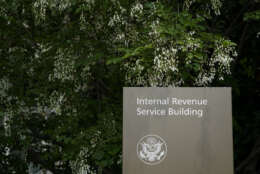Treasury Department
-
Congress is giving the IRS new priorities to staff up and deal with a pandemic-era backlog of tax returns — but a slightly smaller annual budget to meet those goals.
December 21, 2022 -
The Cybersecurity and Infrastructure Security Agency is line for another budget boost, while lawmakers are also reauthorizing CISA’s marquee cyber defense program for another year.
December 20, 2022 -
Biden administration officials point to “great strides” in agencies progress under the President’s Management Agenda, just after it hit its one-year anniversary.
December 14, 2022 -
In today's Federal Newscast, you can add the treasury department to the list of agencies whose workload may significantly increase due to climate change.
October 24, 2022 -
Every policy change has consequences — some intentional, but others can be unexpected. The unexpected ones are the ones that can make a big impact, for Treasury, to the tune of $837,000.
September 16, 2022 -
Treasury Secretary Janet Yellen outlined “bold commitments” the IRS will make over the next six months to build out its workforce and upgrade its IT capabilities.
September 15, 2022 -
Last year, Congress asked the National Academy of Public Administration to examine the sources of data for Social Security and how well it can access them. Here is what they found.
September 09, 2022 -
No fewer than six agencies over the last six weeks promoted or hired new executives to focus on cybersecurity challenges, demonstrating the continued demand for these skillsets.
September 06, 2022 -
The Government Accountability Office says the Treasury Department has made good progress on some deficiencies on financial statements, but new ones have popped up.
August 31, 2022 -
Also in today's Federal Newscast, GAO recommends the military services clear up their tattoo policies.
August 18, 2022 -
A Treasury Department watchdog report finds a software flaw led to the agency failing to collect $472 million in debts owed to over 28 agencies.
July 18, 2022 -
Today marked the second time the United States took a federal holiday to commemorate Juneteenth. Federal agencies commemorated the day on social media.
June 20, 2022 -
Jeff Schramek, the deputy commissioner for fiscal accounting and shared services at the Bureau of Fiscal Service in the Treasury Department, said taking a human centered design approach to improving its shared services offerings.
May 19, 2022 -
Federal leave and time off policies can get mighty complicated. At the IRS, both managers and line employees have had trouble sticking to procedures for family and medical leave act leave.
April 26, 2022 -
In today's Federal Newscast, the Biden administration expects climate change’s toll on the federal government will become more expensive over time.
April 05, 2022













